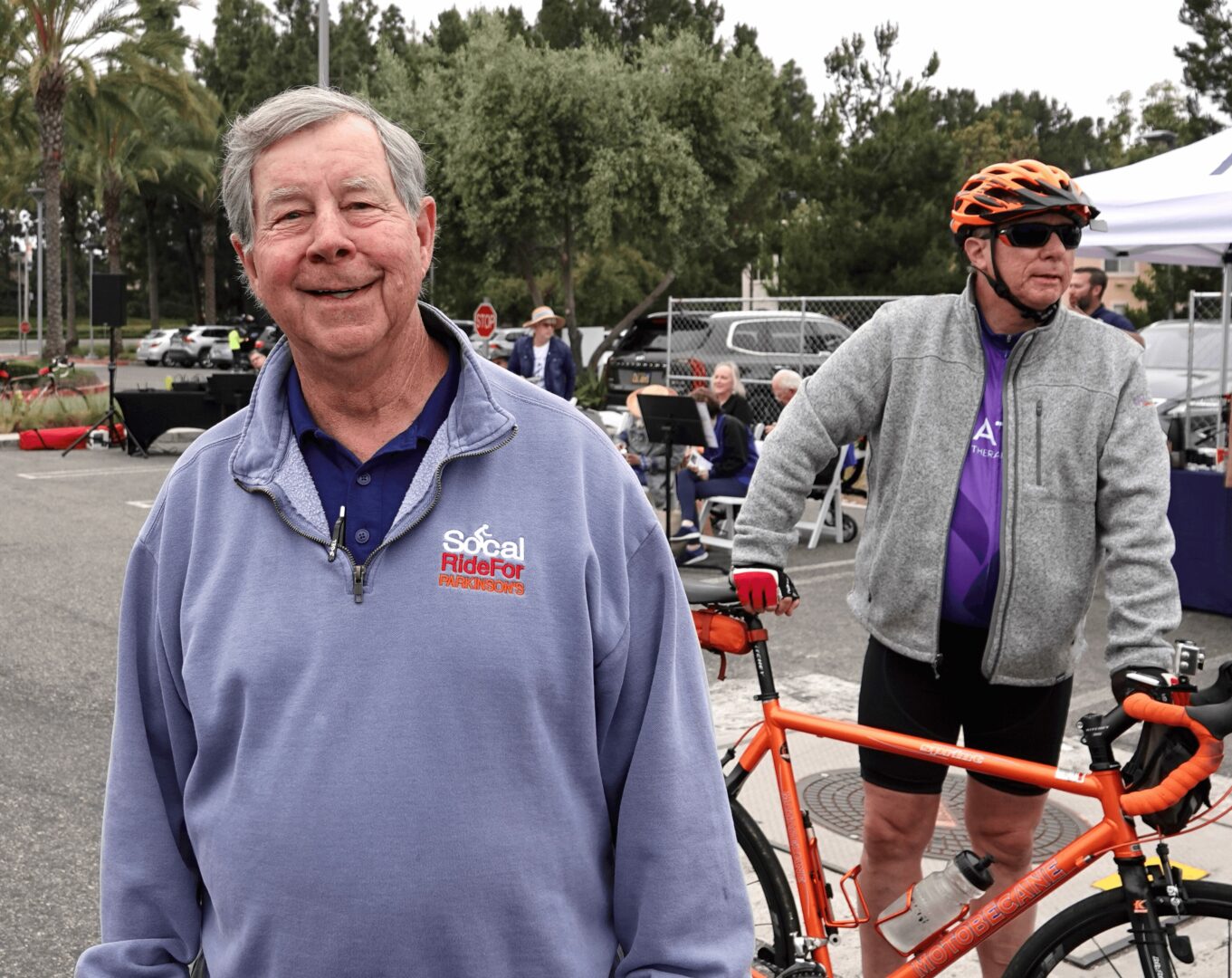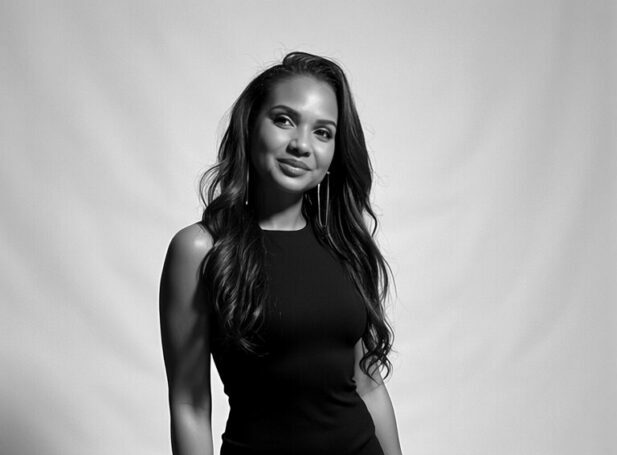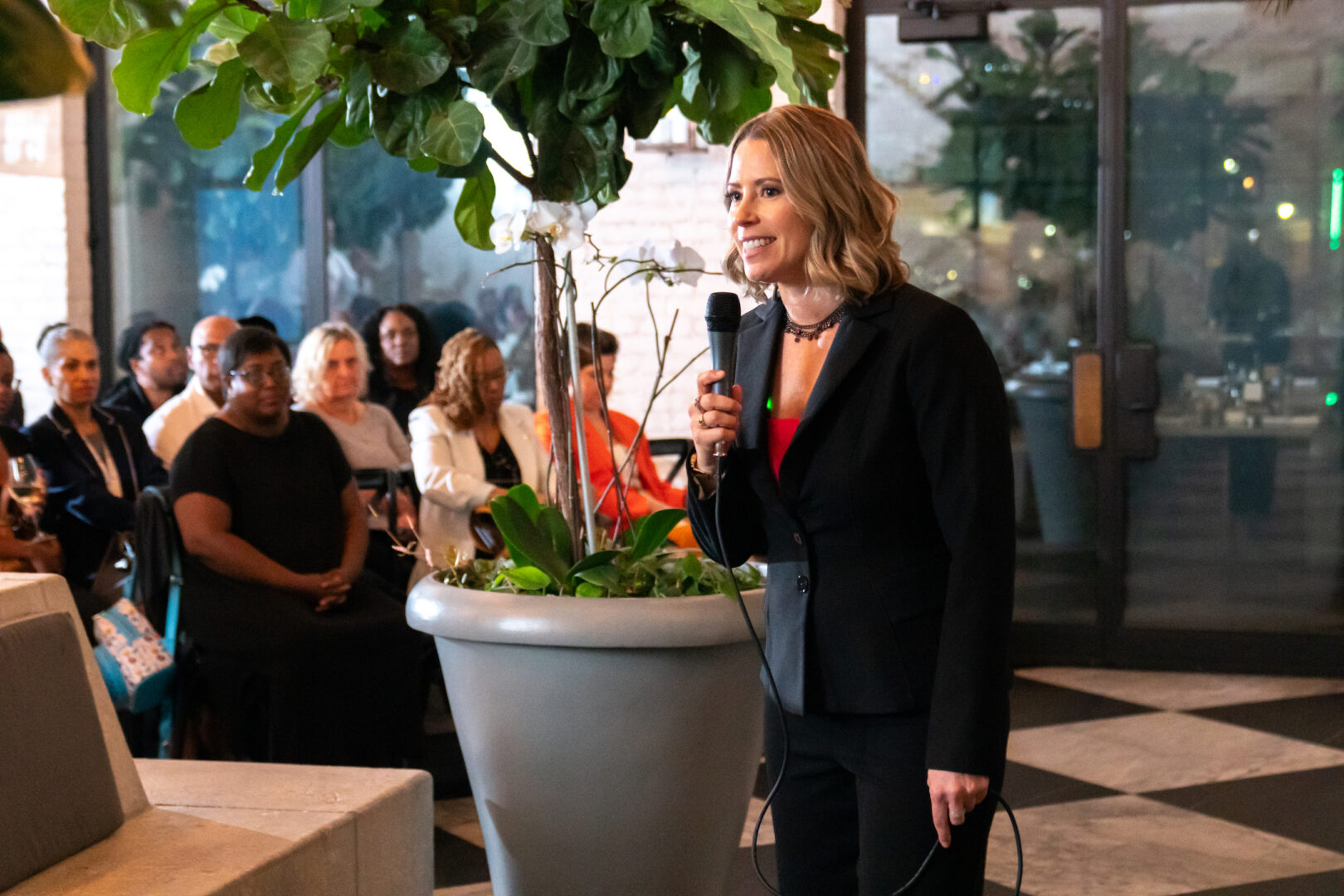We’re excited to introduce you to the always interesting and insightful Robert Lear. We hope you’ll enjoy our conversation with Robert below.
Hi Robert, thanks for sharing your insights with our community today. Part of your success, no doubt, is due to your work ethic and so we’d love if you could open up about where you got your work ethic from?
I was raised by a Marine Corps Aviator father, and a mother that always served in volunteer positions wherever Dad was stationed. By the very nature of my Dad being in the service, a work ethic was instilled in myself and my sister. Both of my parents were born during the ‘Roaring Twenties’, where everything was easy to get. But they also went through the Great Depression, where they had to work for everything they got. There was never a ‘free’ lunch. So, when I grew up in the 50’s, that ethic was instilled in us. Today, if I see that something needs to be done, I do it. Even if it is picking up a piece of trash, opening a door for somebody, or a smile at the person at the cash register.


Thanks for sharing that. So, before we get any further into our conversation, can you tell our readers a bit about yourself and what you’re working on?
My father was a career Marine Corps officer so my youth was spent traveling around the country-from Hawaii to Florida to California and Kansas. When I was in Jr. High School he retired, and we lived in Southern California. I went to a new high school in Tustin and went to UCLA and graduated with a dual major in U.S. History and Political Science. My goal was to teach U.S. History. However, in 1971, when I graduated, the Vietnam War was still going and I got into the National Guard, to avoid going to Vietnam. After graduation, I worked in the Ski Industry for three years in the San Francisco area. I moved back down to Southern California, got married and went to work in the graphic arts industry selling typesetters to printers. Life took over, we had four children, and I was in a dying industry because of the advent of personal computers. With the advent of the Mac from Apple in 1984 at the Print Expo in Chicago it was a downhill slide. Over the course of the next 10 years I bounced from job to job because the traditional print industry didn’t know how to handle the new way of printing. Then in 1994 at a trade show in New York City, everybody thought that the ‘new’ medium was the DVD. It turned out it was the internet and the industry was turned upside down.
I took stock of where I was and going, and I decide to go back and get my teaching credential. So in 1994, I was back in school at 44, getting my credential. School had a different meaning than when I was at UCLA. Life experiences had taught me to question what professors were teaching us. Most of them had never been in the ‘outside’ world of academia. I received my credential in 1995 and couldn’t find a job teaching, so I went back into business. With 4 children and one going into college, I couldn’t afford to not work.
After two years back in the business world, an opportunity came along to go into teaching at the Jr. High level. I jumped at the opportunity and never looked back. So, at the ripe old of 47, I finally found the job that I wanted out of college. Two years later I went back to school and received my Masters in American Studies in 2002. But I realized that it was a good thing that I didn’t get that job as a 22 year old. What life had taught me was that ‘book learning’ has to go hand in glove with what the world expects of you when you get out of school. And often the two don’t correspond with each other. But that is a topic for another time.
For the next twenty years, I taught for 8 years at the Jr. High level and then went on to teach Advanced Placement U.S. History and Advance Placement Comparative Government at the High School level. I retired in 2017.
When I went from the business world to academia, my wife of 23 years and I got divorced. It was a devasting blow. Mostly to my children and what I thought a ‘family’ should be. However, God put another woman in my life that was my soul mate, my best friend, and truly my other half. We were married in January 1998. In 2010, she noticed that her hand-writing wasn’t what it used to be and that she had lost her sense of smell. For the next three years there was a battery of test. In 2013, she was diagnosed with Parkinson’s Disease. For a while we ignored it, saying it just couldn’t be true. But shortly, we realized that we couldn’t stick our heads in the sand-that we had to confront it head on. Her neurologist suggest that she start an exercise class at Hoag Hospital. And we were introduced to the world of Parkinson’s patients.
I was lucky enough to be able to exercise with her and got to know the others that had Parkinson’s. I had never met a group of more positive people in my life. Their attitude was, “Yea, I got this thing called Parkinson’s, so what. Let’s get on with life!” I never heard a grumble or a negative attitude.
I have been a bike rider for most of my adult life. I went from road bikes to mountain bikes, back to road bikes. And I have ridden for many different causes. As I was nearing the end of my teaching career, I thought about putting on a bike ride for The Michael J Fox Foundation. Knowing nothing about fundraising or putting on an event, I was ready to not do it until my youngest daughter at Christmas 2017 said to me, “Oh Dad, just do it! If you just get six riders it is more than they had last year.” So, with her encouragement, I plunged into putting on a bike ride for The Michael J Fox Foundation.
I am a very strong believer that if one give money to a cause then every penny should go to that cause, and not putting on the event or promoting the event. Consequently, the first year we raised $6000 but it cost me $5500 to put on the event. The second year, we raised $8000, and it only cost me $5000. It was not sustainable. The third year, Brian McGuire, who has Parkinson’s, said he wanted to help. His background was in the medical group insurance field. Also, the third year, Covid hit. We didn’t cancel the ride, but we did go ‘virtual.’ We raised $14,000. In the third year we became a 501 (c) 3 corporation and Hoag Hospital would host our ride. In the fourth year we raised $50,000, the fifth year, $78,000, the sixth year, $101,000 and last year $380,000.
In all, over 7 years we have raised just over $800,000 for Parkinson’s research. We have stayed true to our ideal that ALL money goes to MJFF for Parkinson’s research. We are all volunteers, and our sponsors fund the event. But what is more important is that we started with 55 people the first year and last year we had over 600 participants. Most of them are people with Parkinson’s or they have a family member or a friend who is struggling with this disease. That is the exciting part of all of this. People coming together for a cause to help other people and to know that they don’t have to go down this path by themselves-that there are people who want to help.


Looking back, what do you think were the three qualities, skills, or areas of knowledge that were most impactful in your journey? What advice do you have for folks who are early in their journey in terms of how they can best develop or improve on these?
When I was in business (and it became true in academia as well), the ‘good’ bosses would lift up their sales people and help them get sales. It made the sales person feel good about themselves but it also forged an alliance with their boss. And the boss would eventually be promoted. I also saw the bosses that berated their sales people for not making the sale. Then they would get dejected, down on themselves, and it became a self-fulling prophecy. It was also that way in teaching. The principals that would watch out for their teachers had their devotion and when the principal would ask them to do something that wasn’t really what they were supposed to do, they did it anyway. An example. I had a principal that would walk into a classroom on the day the teacher had a birthday, and tell them that he was going to take their classes for them that day. All of us would have walked across burning coals for him. I also had principals that would hound you for any slight infraction, or accuse you of something that you didn’t do. Two completely different approaches to management and, usually, two different outcomes.
My advice to younger people is to look at what your bosses are doing and how they act. Especially, outside the office-if there is such a thing as an ‘office’ anymore. How they act and what they say out side of the ‘work’ world is very telling of what kind of person they are. Then you have to ask yourself, “Do I want to be like them?”
The other thing I would tell younger people is that they should listen to people who have been around a lot longer than them. I know it is not ‘fashionable’ today because our society thinks that older people should be put out to pasture and that their ideas are not relevant today. But they are wrong. Integrity, dignity, courtesy, and respect are never out of fashion and young people can learn a lot from older people that have seen the good and the bad in people. They just have to listen.


Who has been most helpful in helping you overcome challenges or build and develop the essential skills, qualities or knowledge you needed to be successful?
I don’t think there has just been one person, but many that I have learned from that has helped me through life. But I will narrow it down to two.
The first is my faith in God and that He will only give me challenges that I can cope with. In December 1982, I was climbing up Mt. San Jacinto and fell about 300 feet down an ice chute. I was stopped by a tree stump by my right femur. Inches from my crotch, which would have split me in two. But instead, the force of the stop brought my right lower leg down on to a tree stump and all the energy blew out my lower right leg and resulted in a compound fracture of the tibia and fibula. I was alone and nobody knew where I was. Unfortunately, or fortunately, two brothers were cross country skiing above the tram. They had taken off their skis to go out on a point to look at the view. One of them fell, and the other went for help. Both falls happened about the same time. That night, the rescue party kept calling his name, but I was answering. They got to me about midnight and airlifted me off the mountain the next morning. They found John’s body later that day. I have had other near life experiences, and I keep asking myself, “Is it just luck or is there something else for me to do in this life-time?” And I keep coming up with the same answer. That God is not finished with me yet. So, I keep asking God, “What do you want me to do, and I’ll do it.”
The second person is my wife. She is my rock and sounding board. My business and academic careers were mostly spent as an individual and not in an ‘office/group’ type setting. When I taught 8th grade, I was given the ‘assignment’ to annually take a group of 8th graders to Washington DC and surrounding areas for their education. The first year she didn’t go, and it was a so-so trip. The next year she went and added a dimension that made it a resounding success. For the next five years we had to turn students away because so many wanted to go on the trip.
So, when I started SoCal Ride/Walk for Parkinson’s, I have had to learn to work with people that I don’t see eye to eye on, or we have difference of opinion, and she has taught me how to handle difficult situations.
I think the most important thing that I have learned over the years is to listen to people. We all like to think we are right about something but usually there can be a consensus to a problem so that everybody feels that they were part of the solution.
Contact Info:
- Website: https://www.socalride.net


Image Credits
South County Photo Club
so if you or someone you know deserves recognition please let us know here.




